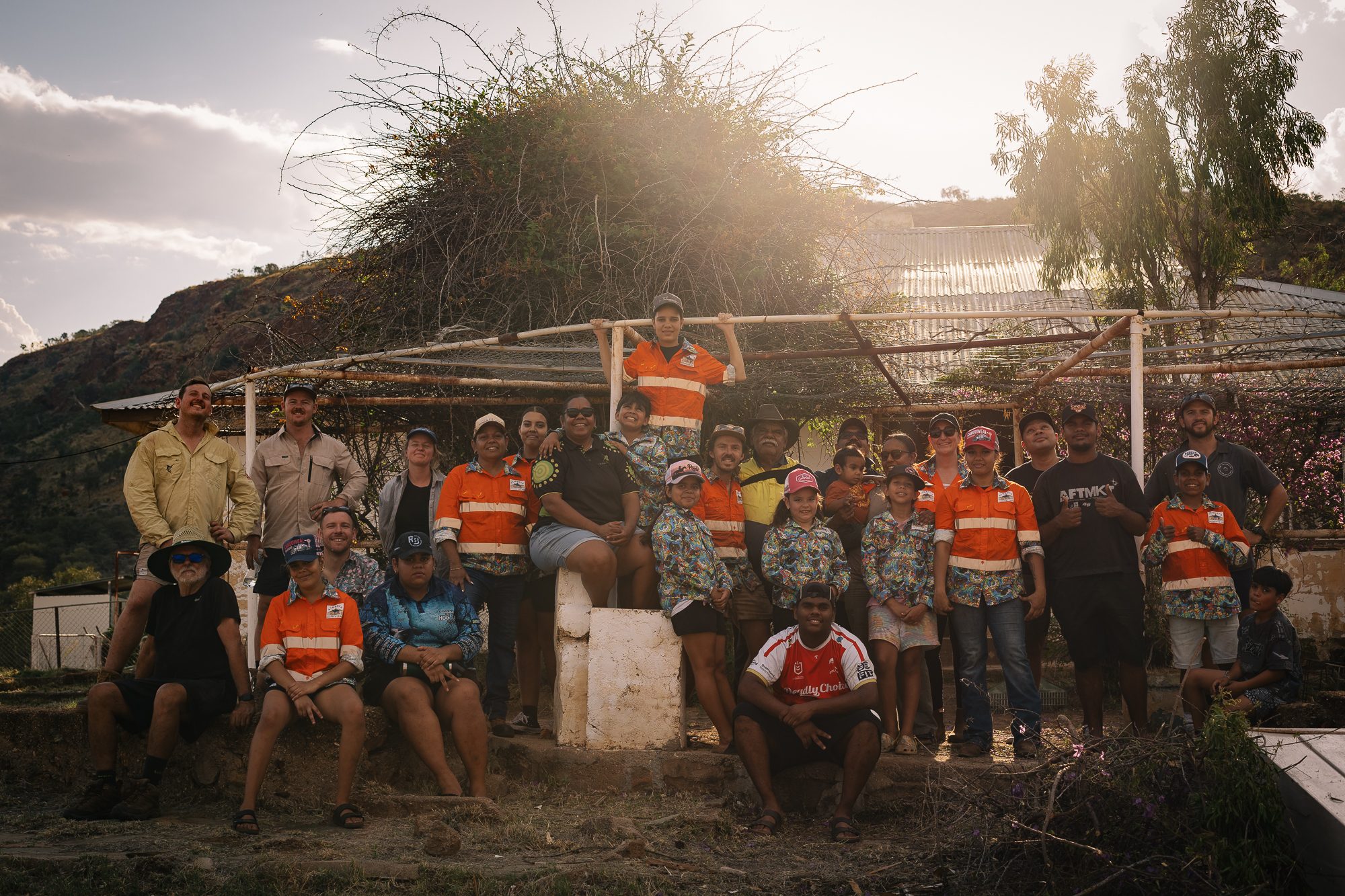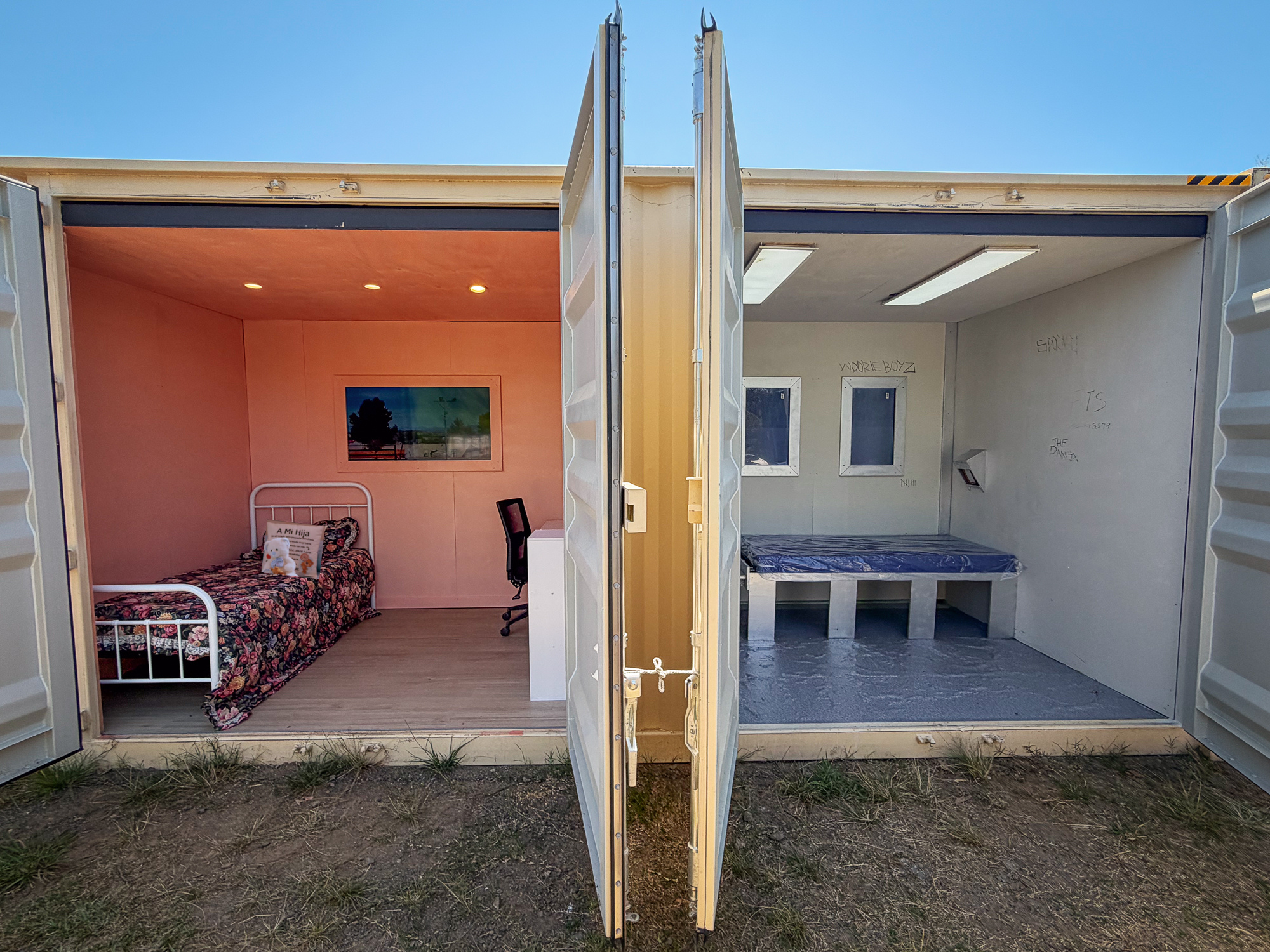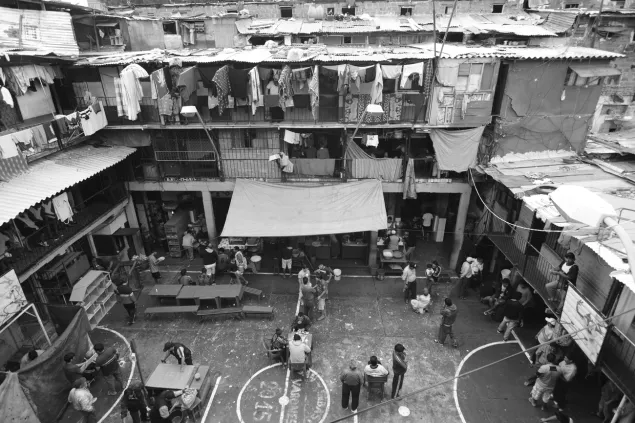In this moment of profound transition, we stand at the intersection of possibility and potential and I've been struggling with the weight of what I see unfolding around us.
I've been quiet lately. Not absent, but quiet in the way that deep waters run silent, processing, witnessing, feeling the collective pull toward conversations that diminish rather than expand our humanity. Every government press release celebrating another youth arrest, every politician performing "tough on crime" theatre, every comment thread dissolving into tribal warfare over who deserves safety and who deserves punishment feels like watching a society choose the smallest version of itself.
And I've been asking myself: How do we speak truth into a world that seems increasingly committed to its own mythology of scarcity and separation?
The Personal Ecology of Systemic Transformation
My journey into this work didn't begin with policy papers or budget analyses. It began, as most authentic transformations do, in the messy intersection of personal experience and collective awakening. Years of youth work taught me that the young people society labels as "problems" are often our greatest teachers - mirrors reflecting back the systems that have failed them, the communities that have abandoned them, the adults who have forgotten what it means to see potential in the face of pain.
Our mountains are both institutional and internal - requiring courage, vulnerability, and an unwavering commitment to seeing beyond current limitations.
This understanding eventually led me to create A Curious Tractor. Not because the world needed another consulting business, but because I kept encountering organisations, communities, and leaders who were asking the same fundamental question: How do we build something different when we're trapped inside systems designed for a world that no longer serves us?
A Curious Tractor emerged from a simple recognition: that most of our approaches to change - whether in youth justice, organisational development, or community transformation - are still rooted in the same mechanistic thinking that created the problems we're trying to solve. We're trying to fix broken systems using the same logic that broke them in the first place.
What if the path forward requires not just different strategies, but entirely different ways of thinking about change itself?
The work we do through A Curious Tractor is about creating spaces for collaborative learning and development that honour the complexity of human systems. It's about working with organisations and communities to build capacity for transformation from the inside out. It's about recognising that sustainable change isn't something we do to systems, it's something that emerges from systems when we create the conditions for collective reimagining.
We are not just participants, but architects of a new paradigm. Each conversation, each connection becomes a thread in a larger tapestry of collective reimagining.
Every engagement, whether with a community organisation struggling to serve complex needs or a corporation trying to navigate rapid change, becomes an opportunity to practice what we preach: that transformation happens through relationship, that wisdom emerges from collective inquiry, that the solutions we need already exist within the communities experiencing the challenges.
The Weight of Contradiction
But here's what keeps me awake at night: while we're working with organisations to embrace collaborative learning, vulnerability, and systemic thinking, the broader society seems to be moving in the opposite direction. While we're helping leaders understand that complex challenges require collective wisdom, our political systems are celebrating simplistic solutions to multifaceted problems.
How do you maintain hope while watching a state spend $859,589 annually to warehouse each child in detention, knowing that the same money could transform thousands of young lives through the kind of collaborative, healing-centred approaches we know actually work?
The mathematics are staggering in their moral clarity:
- $318+ million spent on a youth justice system with a 68% failure rate
- 22-33 times higher detention rates for Indigenous children
- Youth crime representing only 13% of total crime while consuming disproportionate resources
- Community programs that work receiving table scraps while detention infrastructure gets hundreds of millions
But the numbers, devastating as they are, tell only part of the story.
What breaks my heart is witnessing the cognitive dissonance between what we know works in human development and what we continue to fund in public policy. Every day through A Curious Tractor, we see organisations discovering that when you create conditions for authentic collaboration, when you honour the wisdom present in every community, when you design systems around human flourishing rather than control and compliance, remarkable transformations become possible.
Yet these same insights which seem obvious in organisational development contexts become radical impossibilities when applied to criminal justice, education, or social services.
The Conversation We're Not Having
The public discourse around youth justice has become a carefully choreographed dance of moral posturing that avoids the questions that matter most:
What kind of society do we want to be? What do we believe about human nature and the possibility for transformation?What are we actually protecting, and what are we actually destroying? How do we measure success in a system designed to heal rather than harm?
Through A Curious Tractor's work, we've seen what happens when organisations are brave enough to engage these deeper questions. We've watched teams discover that their most entrenched conflicts contain the seeds of their greatest breakthroughs. We've facilitated processes where communities in crisis become laboratories for innovation. We've witnessed leaders learn that vulnerability isn't weakness it's the foundation of authentic authority.
The most unsafe thing we can do is continue investing in approaches that create more trauma, more disconnection, more cycles of harm.
But these lessons, which feel revolutionary in organisational contexts, are exactly what Indigenous communities have been practicing for thousands of years, what restorative justice practitioners have been demonstrating for decades, what countries like Portugal and Norway have been proving at scale for years.
The question is not whether transformation is possible. The question is whether we have the courage to choose it.
The Practice of Collective Transformation
Every engagement with A Curious Tractor becomes an experiment in applied hope. Spaces where power is shared rather than hoarded. Processes where wisdom emerges from collective inquiry rather than individual expertise. Approaches where healing and productivity aren't in competition but are recognized as interdependent.
When we facilitate strategic planning processes that begin with personal reflection and end with collective commitment, we're practicing the integration of inner and outer transformation. When we design learning experiences that honour both individual growth and systemic change, we're modelling what becomes possible when we stop treating personal development and social justice as separate endeavors.
Every breakthrough begins with the audacity to imagine differently.
But I'm tired of this work existing only in the margins, only in the spaces where people already believe transformation is possible. I'm frustrated that the insights emerging from collaborative learning processes aren't informing how we design criminal justice systems, education policies, or community response to crisis.
This is why I've been quiet. Not because I've lost hope, but because I've been feeling the full weight of what we're choosing as individuals, as communities, as a society. In this moment of profound transition, we stand at the intersection of possibility and potential and we're choosing fear.
I see a nation so privileged, so resourced, so capable of profound transformation, and we're being drawn into conversations that divide rather than unite, that diminish rather than expand, that close possibilities rather than open them. We're talking about protecting "what's ours" without examining what ownership means in a world where Indigenous children are detained at rates that can only be described as systematically genocidal.
What are we actually hoarding when we hoard wealth, safety, opportunity? What are we actually protecting when we build walls instead of bridges? What are we actually achieving when winning arguments becomes more important than healing communities?
The young people cycling through our justice system aren't abstractions to be managed or problems to be solved they are our children, carrying trauma we inflicted, responding to abandonment we created, reflecting back the violence we normalized. They are mirrors showing us exactly who we've chosen to become.
Our mountains are both institutional and internal requiring courage, vulnerability, and an unwavering commitment to seeing beyond current limitations.
The transformation Queensland needs, that Australia needs, that our world desperately needs, cannot be achieved through policy reform alone. It requires what Indigenous communities have always known, what our best organisational development work confirms: that healing the systems requires healing ourselves, that changing the world requires changing our consciousness, that sustainable transformation emerges from the inside out.
This is the heart of A Curious Tractor's approach: recognising that the quality of our external systems reflects the quality of our internal capacity for connection, collaboration, and care. That the way we treat the most vulnerable in our society mirrors the way we treat the most vulnerable parts of ourselves.
Money means fuck all if we don't have connections with people around us. Safety means nothing if it's built on other people's suffering. Being right is worthless if it comes at the cost of being human.
The path forward requires us to become comfortable with not knowing, with being wrong, with having our assumptions challenged by people whose experiences we've never lived. It requires curiosity over certainty, questions over answers, vulnerability over defensiveness.
What if we stopped trying to fix broken systems and started building new ones? What if we applied the same collaborative learning principles that transform organisations to transforming our approach to community safety? What if we measured success by how many young people we helped flourish rather than how many we managed to contain? What if we organised our communities around the principle that every person carries gifts the world desperately needs?
This is not naive optimism - this is the same radical pragmatism that guides every A Curious Tractor engagement. The recognition that complex challenges require collective wisdom, that sustainable solutions emerge from authentic relationship, that transformation happens when we create conditions for it rather than trying to force it.
The evidence is overwhelming that approaches rooted in healing, connection, and restoration create better outcomes for everyone involved.
Portugal's health-focused drug policy. Norway's rehabilitation-centred prisons. Finland's collaborative education system. Boston's community policing model. These aren't utopian fantasies - they are practical demonstrations that different choices create different realities. They are large-scale applications of the same principles that make collaborative learning processes so transformative: starting with human dignity, honouring complexity, building from wisdom that already exists within communities.
I'm here to think deeper about this. I'm going to say some real shit that people won't like. I'm here to push boundaries on what we accept as normal, as inevitable, as "just the way things are."
Because if we're not challenged to think differently, if we're not curious about whether we might be wrong, if we're not always questioning our assumptions about human nature and social possibilities, then we're just reproducing the same patterns that got us here.
This blog, this work, A Curious Tractor itself, it's all an invitation to anyone ready to move beyond the binary thinking that keeps us trapped in cycles of harm.
It's for people willing to examine their own investments in punishment and control. It's for communities ready to experiment with healing-centred responses to conflict. It's for organisations brave enough to design systems around human flourishing rather than fear and compliance. It's for anyone who suspects that the way things are is not the way things have to be.
Together, we climb toward something that doesn't exist yet.
Not because the path is clear, but because the destination is worthy. Not because we have all the answers, but because we're willing to live in the questions. Not because change is easy, but because the alternative - continuing to fund failure, to warehouse trauma, to systematically destroy the potential of our most vulnerable children is unacceptable.
The Audacity of Love
Every breakthrough begins with the audacity to imagine differently.
What I'm proposing through this work, through A Curious Tractor, through this writing, is not policy reform. What I'm proposing is a revolution in how we understand human nature, community safety, and our responsibility to each other. What I'm proposing is that we organise our society around the same radical assumptions that make collaborative learning so powerful: that every person carries wisdom, that collective intelligence emerges when we create conditions for it, that transformation is possible when we stop trying to force it and start creating space for it.
This is the audacity of love: the willingness to see beyond current behaviour to human potential, to invest in possibilities rather than just manage problems, to build systems that call forth our highest rather than reinforce our lowest.
In this moment of profound transition, we have a choice.
We can continue pouring millions into the machinery of punishment while children sleep in police watch houses and Indigenous families are systematically destroyed. We can keep celebrating arrest statistics while ignoring the human cost of our collective failure to imagine better.
Or we can choose the path that Portugal, Norway, and countless communities around the world have already mapped: the path from punishment to transformation, from fear to love, from systems that diminish to systems that dignify. The same path that guides every meaningful organisational transformation, every authentic leadership development process, every collaborative learning experience that actually changes how people see themselves and their possibilities.
The choice is ours. The time is now. The future is unwritten.




.svg)